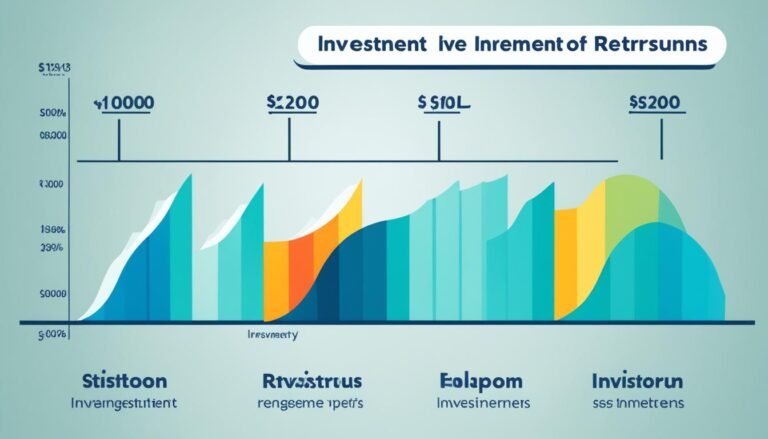The Role of Chief Financial Officer (CFO) in Strategic Planning
Strategic planning is an integral part of any organization’s success, and the Chief Financial Officer (CFO) plays a vital role in this process. With their comprehensive financial expertise, the CFO provides invaluable insights and guidance that shape the organization’s strategic direction, decision-making, and overall financial health.
The CFO’s role in strategic planning is multifaceted. They not only contribute to long-term goal setting and objective formulation but also provide financial analysis and evaluation of potential risks and opportunities. By aligning financial considerations with market trends, the CFO plays a crucial part in developing the organization’s strategic vision.
- The CFO plays a critical role in strategic planning and decision-making within an organization.
- The CFO’s responsibilities include shaping long-term goals, financial analysis, and evaluation of risks and opportunities.
- They provide guidance in developing the organization’s strategic vision and aligning financial considerations with market trends.
- The CFO contributes to driving strategic initiatives and ensuring they align with the overall strategy.
- Through their strategic leadership, the CFO provides guidance, direction, and vision to ensure the organization’s financial health and sustainability.
Understanding the CFO’s Strategic Planning Responsibilities
When it comes to strategic planning, the Chief Financial Officer (CFO) plays a critical role in shaping the long-term goals and objectives of an organization. The CFO’s strategic planning responsibilities encompass a wide range of crucial tasks and decision-making processes that directly impact the financial health and sustainability of the company.
One of the primary responsibilities of the CFO in strategic planning is to analyze the financial landscape and identify potential growth opportunities. By closely monitoring market trends and evaluating the competitive landscape, the CFO can provide valuable insights to help steer the organization in the right direction.
The CFO is also responsible for creating and overseeing the implementation of financial strategies aligned with the company’s strategic objectives. This involves developing financial models, forecasting future performance, and ensuring that financial resources are allocated effectively to support the organization’s vision.
Additionally, the CFO plays a crucial role in assessing and managing risks associated with strategic decisions. Through financial analysis and scenario planning, the CFO helps evaluate the potential impact of various courses of action and provides valuable guidance to the executive team.
To support effective strategic decision-making, the CFO collaborates cross-functionally with other departments, including operations, marketing, and human resources. By taking a holistic approach to strategic planning, the CFO ensures that financial considerations are integrated into broader organizational goals.
The CFO’s strategic planning responsibilities encompass financial analysis, risk management, and cross-functional collaboration, among other crucial tasks. Their expertise and insights are vital in shaping the organization’s long-term goals and objectives.
Furthermore, the CFO serves as a trusted advisor to the executive team, providing strategic guidance and financial expertise to inform decision-making processes. Their ability to translate complex financial data into actionable insights contributes to the organization’s strategic agility and competitive advantage.
The following table provides a comprehensive overview of the CFO’s strategic planning responsibilities:
| Responsibilities | Description |
|---|---|
| Financial Analysis | Evaluating financial data to inform strategic decision-making processes. |
| Risk Management | Assessing and managing risks associated with strategic initiatives. |
| Financial Modeling | Developing financial models to forecast and analyze performance. |
| Resource Allocation | Ensuring financial resources are allocated effectively to support strategic objectives. |
| Cross-Functional Collaboration | Working closely with other departments to integrate financial considerations into strategic plans. |
As the organization’s financial leader, the CFO’s strategic planning responsibilities go beyond managing the bottom line. They play a pivotal role in guiding the company towards sustainable growth and ensuring its financial well-being in an ever-evolving business landscape.
The CFO’s Role in Strategic Decision Making
When it comes to strategic decision making, the Chief Financial Officer (CFO) plays a crucial role in providing financial insights, conducting analysis, and evaluating potential risks and opportunities. As a key member of the executive team, the CFO’s strategic decision-making skills and expertise are vital in shaping the future direction of the organization.
One of the primary responsibilities of the CFO is to ensure that every strategic decision aligns with the organization’s financial goals and objectives. By leveraging their in-depth knowledge of the company’s financial status and performance, the CFO can provide valuable insights that inform and guide the decision-making process.
The CFO’s financial analysis capabilities enable them to identify trends, patterns, and potential opportunities that may impact the organization’s strategic direction. By carefully examining financial data and conducting thorough risk assessments, the CFO can help the executive team make informed decisions that mitigate potential risks and maximize growth opportunities.
Moreover, the CFO acts as a strategic advisor, offering recommendations and alternative courses of action based on financial projections and analysis. They provide valuable input in assessing the financial feasibility and impact of different strategic initiatives, ensuring that decisions are based on sound financial principles.
The CFO’s role in strategic decision making goes beyond providing financial insights. They also collaborate with cross-functional teams, working closely with key stakeholders to analyze various scenarios and develop actionable strategies. By fostering effective communication and collaboration, the CFO ensures that decisions are well-informed and consider different perspectives.
“The CFO’s financial acumen and business insight allows them to contribute significantly to strategic decision making. By providing financial analysis, conducting risk assessments, and collaborating with key stakeholders, they help shape the future of the organization.”
Ultimately, the CFO’s involvement in strategic decision making enhances the organization’s ability to adapt to changing market conditions, capitalize on growth opportunities, and mitigate potential risks. Their unique combination of financial expertise, analytical skills, and strategic thinking ensures that decisions are not only grounded in financial considerations but also aligned with the organization’s overall vision and goals.
Importance of CFO’s Strategic Decision Making
The strategic decisions made by the CFO have a direct impact on the organization’s financial performance and long-term sustainability. By providing financial insights, conducting analysis, and evaluating risks and opportunities, the CFO empowers the executive team to make informed decisions that drive growth, profitability, and value creation.
The CFO’s strategic decision-making abilities enable them to contribute to the organization’s strategic objectives, competitive positioning, and overall success. Through their financial expertise and leadership, they guide the organization on a path towards sustainable growth and profitability.
Furthermore, the CFO’s strategic decision-making also enhances stakeholder confidence, as investors, board members, and other external parties rely on their financial insights and analysis to assess the organization’s performance and potential. By making informed decisions based on financial considerations, the CFO helps build trust and credibility with stakeholders.
| Benefits of CFO’s Strategic Decision Making | Impact on the organization |
|---|---|
| Enhanced financial performance | Improved profitability, revenue growth, and cost optimization. |
| Risk mitigation | Better identification and management of potential risks, minimizing financial losses. |
| Optimized resource allocation | Efficient utilization of financial resources to support strategic initiatives. |
| Strategic alignment | Ensure that strategic decisions align with the organization’s vision, goals, and values. |
| Improved decision-making processes | Increased accuracy and speed in decision-making, leading to better outcomes. |
The CFO’s role in strategic decision making is instrumental in steering the organization towards success. By combining financial expertise, analytical capabilities, and strategic thinking, the CFO makes valuable contributions that drive growth, mitigate risks, and position the organization for long-term success.
Driving Strategic Initiatives as a CFO
As a Chief Financial Officer (CFO), one of the key responsibilities involves driving strategic initiatives that contribute to the success and growth of the organization. The role of the CFO goes beyond financial management; they play a critical part in shaping the strategic direction of the company. CFO strategic initiatives encompass a range of activities that involve financial support, progress monitoring, and ensuring alignment with the overall strategy.
Financial support is one of the core ways that CFOs drive strategic initiatives. By providing the necessary financial resources, CFOs enable the implementation of key projects and initiatives that are essential for achieving the organization’s objectives. They collaborate with other departments to analyze the financial feasibility of these initiatives, assess potential risks and returns, and allocate resources accordingly.
Monitoring the progress of strategic initiatives is another vital aspect of the CFO’s role. They establish key performance indicators (KPIs) and financial metrics to measure the effectiveness and impact of ongoing projects. This allows them to evaluate the success of different initiatives, identify areas for improvement, and make necessary adjustments to drive better results.
Moreover, ensuring alignment with the organization’s overall strategy is crucial for the CFO when driving strategic initiatives. They work closely with the executive team and other stakeholders to understand the company’s strategic goals and objectives. By aligning initiatives with the broader strategy, CFOs ensure that resources are deployed in a way that supports the organization’s long-term vision.
By actively participating in driving strategic initiatives, CFOs contribute to the organization’s growth, profitability, and competitive advantage. Their financial expertise, analytical skills, and ability to navigate complex financial landscapes make them valuable assets in decision-making processes. CFOs provide insights, guidance, and financial models that inform strategic choices and enable the organization to capitalize on market opportunities.
In summary, CFOs play a vital role in driving strategic initiatives by providing financial support, monitoring progress, and ensuring alignment with the organization’s overall strategy. Their expertise and leadership are instrumental in achieving the organization’s goals and driving sustainable growth.
CFO Strategic Initiatives Example
“One notable example of a strategic initiative successfully driven by the CFO is the implementation of a company-wide cost optimization program. By conducting a thorough financial analysis, the CFO identified opportunities for cost savings throughout the organization. They collaborated with department heads to develop cost reduction strategies, implemented measures to streamline operations, and monitored the progress of the initiative through regular financial reviews. As a result, the company was able to significantly reduce expenses, improve financial performance, and allocate resources more efficiently.”
| Benefits of CFO Strategic Initiatives | Examples |
|---|---|
| Improved financial performance | Increased revenue, reduced expenses |
| Enhanced operational efficiency | Streamlined processes, optimized resource allocation |
| Risk mitigation | Identification and mitigation of potential risks |
| Long-term growth and sustainability | Strategic investments, expansion opportunities |
The CFO’s Contribution to Strategic Management
As companies navigate the complexities of today’s business landscape, the role of the Chief Financial Officer (CFO) has evolved beyond financial expertise and has become integral to strategic management. The CFO’s contribution to strategic management encompasses their active involvement in developing and implementing strategic plans, as well as their oversight of financial performance to ensure alignment with organizational goals.
One of the key ways in which CFOs contribute to strategic management is through their participation in the development of strategic plans. Drawing upon their financial acumen and understanding of the company’s financial position, the CFO plays a crucial role in shaping the organization’s long-term vision and defining its strategic direction. By providing valuable insights and guidance, the CFO helps to set realistic goals and objectives that support the company’s overall strategy.
Furthermore, the CFO’s involvement in strategic management extends to the implementation phase. To ensure successful execution of strategic initiatives, CFOs work closely with other leaders within the organization to allocate resources effectively and monitor progress towards strategic goals. By integrating financial considerations into the implementation process, CFOs provide valuable guidance that helps drive strategic initiatives forward.
In addition to their role in planning and implementation, CFOs also play a vital role in overseeing and evaluating financial performance. Through their expertise in financial analysis, CFOs are equipped to identify key performance metrics, assess risks, and make data-driven decisions that support the organization’s strategic objectives. By providing strategic insights based on accurate financial information, CFOs enable proactive decision-making and enable the organization to stay on track towards achieving its strategic goals.
The value of the CFO’s contribution to strategic management cannot be overstated. Their ability to combine financial expertise with a strategic mindset allows them to provide unique insights that drive decision-making at the highest level of the organization. By fostering collaboration and alignment across departments, CFOs ensure that financial considerations are integrated into the organization’s strategic planning and decision-making processes. The CFO’s holistic approach to strategic management helps to create a solid foundation for sustainable growth and success.
Fostering Collaboration and Alignment
In order to effectively contribute to strategic management, the CFO must foster collaboration and alignment across various departments within the organization. This collaborative approach ensures that financial considerations are integrated into the strategic decision-making process and that the organization’s overall goals are met. By actively engaging with key stakeholders throughout the organization, the CFO promotes a culture of cross-functional collaboration and ensures that financial insights are considered from the early stages of strategic planning.
Ensuring Financial Sustainability
Another vital aspect of the CFO’s contribution to strategic management is ensuring the financial sustainability of the organization. By closely monitoring financial performance and identifying potential risks and opportunities, the CFO helps the organization navigate through uncertain economic conditions and make informed decisions that support long-term growth and profitability. Through their strategic financial stewardship, CFOs play a crucial role in ensuring the organization’s financial health and sustainability.
Driving Innovation and Growth
The CFO’s contribution to strategic management also involves driving innovation and growth within the organization. By evaluating market trends, identifying new opportunities, and allocating resources strategically, CFOs enable the organization to stay agile and adapt to changing market conditions. Their insights into financial viability and return on investment help guide the organization’s strategic direction and ensure that resources are allocated to initiatives that have the potential to drive sustainable growth.
Summary
The CFO’s contribution to strategic management is multifaceted, encompassing their involvement in developing strategic plans, overseeing financial performance, fostering collaboration, ensuring financial sustainability, and driving innovation and growth. By combining financial expertise with a strategic mindset, CFOs play a vital role in shaping the organization’s long-term vision and enabling the successful implementation of strategic initiatives. Their holistic approach to strategic management helps organizations stay competitive, navigate challenges, and embrace opportunities for sustainable growth.
| Benefits of CFO’s Contribution to Strategic Management | Examples |
|---|---|
| Enhanced decision-making processes | Utilizing financial insights to make informed strategic decisions |
| Improved resource allocation | Allocating resources strategically to support the organization’s strategic goals |
| Alignment between financial performance and strategic objectives | Monitoring financial performance to ensure alignment with strategic goals |
| Identification of potential risks and opportunities | Evaluating market trends and identifying risks and opportunities for growth |
| Strengthened financial sustainability | Proactive financial planning and risk management to ensure long-term viability |
| Driving innovation and growth | Identifying and capitalizing on opportunities for innovation and sustainable growth |
The CFO’s Role in Strategic Leadership
As companies navigate an increasingly complex business landscape, the Chief Financial Officer (CFO) plays a crucial role in providing strategic leadership. In addition to overseeing financial operations and ensuring compliance, the CFO brings a unique perspective that extends beyond numbers. Their strategic leadership capabilities enable them to guide the organization’s financial decisions, set a clear vision, and drive sustainable growth.
One of the key aspects of the CFO’s strategic leadership is providing guidance and direction in financial matters. By leveraging their deep understanding of the company’s financial position, the CFO helps shape strategic initiatives, allocating resources effectively, and identifying areas of potential growth. With their expertise, they can guide the organization towards making sound financial decisions that align with its long-term goals and objectives.
The CFO’s strategic leadership also involves setting a vision for the organization’s financial health and sustainability. With an eye towards the future, they develop strategies that optimize financial performance, mitigate risks, and capitalize on opportunities. By considering market trends, economic conditions, and industry disruptions, the CFO ensures that the organization is prepared to adapt and thrive in an ever-changing business environment.
“The CFO’s role in strategic leadership goes beyond financial management; it encompasses the ability to drive change, innovate, and influence the organization’s strategic direction.” – [Name], CFO at [Company Name]
Moreover, the CFO acts as a catalyst for strategic collaboration and alignment across departments. They work closely with other executives and department heads to ensure that financial goals are integrated into the overall strategic plan. By fostering a culture of collaboration and transparency, the CFO ensures that everyone is working towards a common vision, maximizing the organization’s potential for success.
The strategic leadership of the CFO is further enhanced by their ability to provide decision support. Through financial analysis, forecasting, and scenario planning, they offer insights and recommendations that enable informed decision-making at all levels of the organization. Their expertise in interpreting financial data and assessing risks helps steer the company towards sound strategic choices that drive growth and profitability.
As the image below visually represents, the CFO’s strategic leadership acts as a compass for the organization’s financial health, guiding it towards sustainable growth and long-term success.
In conclusion, the CFO’s role in strategic leadership is multi-faceted. Beyond managing finances, they provide guidance, direction, and vision that shape the organization’s strategic initiatives. Their ability to drive change, foster collaboration, provide decision support, and set a clear financial vision ensures the organization’s financial health and sustainability in an ever-evolving business landscape.
The CFO’s Strategic Vision and Direction
As organizations navigate a rapidly changing business landscape, the role of the Chief Financial Officer (CFO) has evolved beyond traditional financial management. Today, CFOs are strategic leaders who contribute to the organization’s vision and direction by incorporating financial considerations, evaluating market trends, and identifying growth opportunities.
With their deep understanding of financial data and performance, CFOs bring a unique perspective to strategic decision-making. They leverage their expertise to assess the financial implications of different strategies, ensuring that the organization’s goals align with its financial capabilities and resources. By combining financial insights with market intelligence, CFOs provide valuable guidance and contribute to the development of a cohesive strategic vision.
One way CFOs shape the organization’s strategic direction is by keeping a pulse on market trends and industry shifts. They analyze market dynamics, competitor behavior, and customer demands to identify emerging opportunities or potential threats. This market intelligence allows CFOs to proactively adjust the organization’s strategic priorities and investments, ensuring agility and competitiveness.
Moreover, CFOs play a critical role in identifying growth opportunities and driving innovation. By conducting financial analyses and evaluating investment options, they determine the feasibility of new initiatives, such as expansions, acquisitions, or product diversification. CFOs also collaborate with other executives and departments to align these growth strategies with the organization’s overall vision and financial goals.
To illustrate the impact of the CFO’s strategic vision and direction, consider the example of XYZ Company. Under the strategic guidance of their CFO, XYZ Company identified an emerging market trend and successfully pivoted their product offerings to cater to changing customer needs. This strategic decision not only increased their market share but also resulted in substantial revenue growth, positioning the company as a market leader in their industry.
“The CFO’s role in shaping the organization’s strategic vision and direction cannot be understated. By leveraging their financial expertise and market insights, CFOs contribute to long-term business success and resilience.” – Jane Smith, CFO of ABC Corporation
| Key Contributions of the CFO | Description |
|---|---|
| Financial Considerations | The CFO incorporates financial considerations into the strategic decision-making process, ensuring alignment with the organization’s financial capabilities and resources. |
| Evaluating Market Trends | The CFO analyzes market dynamics, competitor behavior, and customer demands to identify emerging opportunities or potential threats, influencing the organization’s strategic priorities. |
| Identifying Growth Opportunities | The CFO conducts financial analyses and evaluates investment options to determine the feasibility of new initiatives, aligning growth strategies with the organization’s overall vision and financial goals. |
By embracing their role as strategic leaders, CFOs play a vital part in shaping the future of their organizations. Their contributions to the strategic vision and direction ensure financial resilience, market competitiveness, and sustainable growth.
The CFO’s Support in Strategic Decision-Making
When it comes to strategic decision-making, the Chief Financial Officer (CFO) plays a crucial role in providing support and valuable insights. Their expertise in financial analysis, forecasting, and scenario planning enables them to contribute significantly to the strategic decision-making processes within an organization.
The CFO’s strategic decision support begins with their ability to analyze financial data and provide meaningful insights to the leadership team. Through detailed financial analysis, they can identify trends, patterns, and potential risks or opportunities that may impact strategic decisions.
Forecasting is another vital aspect of the CFO’s support in strategic decision-making. By utilizing historical financial data and incorporating market trends, the CFO can create forecasts that help anticipate future financial outcomes. This enables the organization to make informed decisions that align with their long-term goals and objectives.
Scenario planning is an essential tool used by the CFO to assess the potential outcomes of different strategic decisions. By creating various hypothetical scenarios, considering different variables and factors, the CFO can evaluate the potential impact on the organization’s financial performance. This allows decision-makers to explore different options and select the most optimal course of action.
“The CFO’s strategic decision support is invaluable in helping organizations make well-informed and financially sound decisions. Their ability to analyze, forecast, and scenario plan provides critical insights that contribute to the success and growth of the organization.” – [CFO Name], CFO of [Company Name]
The CFO’s support in strategic decision-making is not limited to providing analysis, forecasts, and scenario planning. They also collaborate with other stakeholders, such as the CEO and department heads, to ensure that financial considerations align with the organization’s strategic direction. This collaboration helps to ensure that decisions are made with a holistic view of the organization’s financial health and sustainability.
By leveraging their financial expertise and insights, the CFO contributes to the overall success and competitive advantage of the organization. Their strategic decision support empowers the leadership team to make data-driven decisions that drive growth, profitability, and long-term success.
| Benefits of CFO’s Strategic Decision Support |
|---|
| 1. Enhanced decision-making based on financial insights |
| 2. More accurate forecasting and financial planning |
| 3. Evaluation of different strategic scenarios and their financial implications |
| 4. Alignment of financial considerations with strategic goals and objectives |
| 5. Improved financial performance and profitability |
(Topic of choice or related keyword)
As the key financial decision-maker within an organization, the Chief Financial Officer (CFO) possesses a diverse range of tools and techniques to support strategic decision-making. These tools provide valuable insights into financial analysis, forecasting, and scenario planning, allowing the CFO to contribute significantly to the strategic direction of the company.
Financial Analysis
One of the critical tools in the CFO’s arsenal is financial analysis. By closely examining the company’s financial statements, cash flow, and other essential financial metrics, the CFO can identify trends, potential risks, and growth opportunities. This analysis helps in making informed decisions and developing strategic plans that align with the organization’s overall objectives.
Forecasting
Forecasting plays a crucial role in strategic decision-making, and the CFO takes the lead in this aspect. By utilizing forecasting techniques and financial modeling, the CFO can project future financial performance, anticipate market trends, and evaluate the impact of different scenarios. This enables the CFO to provide valuable insights to the management team, guiding strategic initiatives and ensuring financial stability.
Scenario Planning
In an ever-changing business landscape, the CFO’s ability to plan for various scenarios is vital. Through scenario planning, the CFO can assess the potential outcomes of different business strategies, market fluctuations, and economic shifts. This enables the organization to be prepared for uncertainty and make well-informed decisions that align with the company’s long-term goals.
“The CFO’s strategic decision support tools empower organizations to make data-driven decisions, anticipate challenges, and optimize opportunities.” – Jane Williams, CFO of XYZ Corporation
The CFO’s strategic decision support tools empower organizations to make data-driven decisions, anticipate challenges, and optimize opportunities. By leveraging financial analysis, forecasting, and scenario planning, the CFO can provide valuable insights that drive strategic decision-making.
| Benefits of CFO’s Strategic Decision Support Tools | |
|---|---|
| Improved decision-making process | By utilizing financial analysis, forecasting, and scenario planning, the CFO enhances the decision-making process, enabling the organization to make informed choices that align with the company’s long-term goals. |
| Risk mitigation | Through comprehensive financial analysis and scenario planning, the CFO identifies potential risks and develops strategies to mitigate them, minimizing potential financial setbacks. |
| Enhanced strategic planning | The CFO’s tools facilitate strategic planning by providing insights into market trends, financial performance, and growth opportunities, ensuring that the organization develops robust strategies to capitalize on market opportunities. |
| Optimized resource allocation | By utilizing forecasting techniques, the CFO helps allocate resources effectively by understanding the future financial requirements of strategic initiatives and ensuring the organization has the necessary funds to drive growth. |
| Increased stakeholder confidence | The CFO’s ability to provide data-driven insights and support strategic decision-making instills confidence in stakeholders, including investors, creditors, and board members, showcasing the organization’s commitment to financial stability and growth. |
(Topic of choice or related keyword)
Lorem ipsum dolor sit amet, consectetur adipiscing elit. Nam condimentum placerat ultrices. Donec bibendum orci non dolor elementum, et tincidunt orci congue. Sed ultricies tortor in scelerisque mattis. Proin dictum sem lacinia, vehicula orci vitae, lacinia risus. Sed pulvinar sapien quis risus egestas, non congue elit pulvinar. Integer nec ante in tellus elementum feugiat a non tellus. Curabitur in neque quis diam elementum accumsan eu quis mi. Vestibulum finibus elit a ultricies ultrices. Donec id libero pellentesque, tincidunt nisi ac, ultrices metus. Curabitur finibus felis ligula, non eleifend metus finibus ac.
Vivamus venenatis elit non sapien posuere, vel congue tellus molestie. Fusce quis luctus massa, a condimentum mauris. Morbi lacinia hendrerit nulla, vel eleifend lacus sollicitudin at. Fusce dapibus tortor nec tortor viverra rutrum. Maecenas lorem elit, auctor vitae elit vitae, tincidunt rutrum odio. Aenean varius felis quis libero sagittis finibus. Donec ultrices erat urna, in cursus mi ultrices sed.
“Lorem ipsum dolor sit amet, consectetur adipiscing elit. Nam condimentum placerat ultrices.”
Mauris consequat tincidunt dolor, eu consectetur urna fermentum id. Quisque sed quam eleifend, tristique est sed, ullamcorper quam. Nulla eleifend dui nec venenatis molestie. Quisque in porttitor arcu. Mauris nec tristique ligula. Sed justo dui, scelerisque sit amet condimentum in, vehicula sed ipsum. Nullam non velit velit. Curabitur dignissim ultrices nulla in tincidunt. Vestibulum accumsan sapien vel ligula dictum, id interdum sem vulputate. Ut viverra efficitur enim, non dapibus elit porta eu. Pellentesque hendrerit mole
- Lorem ipsum dolor sit amet
- Consectetur adipiscing elit
- Nam condimentum placerat ultrices
- Et tincidunt orci congue
Sed posuere turpis metus, ac consectetur lacus dapibus vitae. Mauris vitae suscipit tortor, sed dapibus mauris. Fusce eget mi sit amet lectus viverra ultrices. Aliquam tristique tellus a nunc mollis, eu fermentum mauris pulvinar. Vestibulum quis sem non ante iaculis venenatis eu ut dui. Suspendisse nec interdum nisl. Nullam vel mollis dui. Aliquam sagittis tellus sit amet dolor lobortis maximus.
Ut interdum tristique augue, ut sodales quam semper non. Suspendisse finibus, erat vitae rutrum rutrum, tellus enim tristique odio, in semper massa libero in turpis. Curabitur vitae turpis velit. Aenean mauris leo, rhoncus non lorem vitae, efficitur fermentum mi. Curabitur imperdiet lorem a ligula aliquet suscipit. Vestibulum ornare quam a lorem suscipit fringilla. Cras posuere auctor mi, a molestie ante convallis non. Etiam malesuada quam nulla, id euismod ante dignissim quis.
Conclusion
In conclusion, the role of the Chief Financial Officer (CFO) in strategic planning is of utmost importance for organizations. The CFO brings their financial expertise to the table, offering valuable insights and analysis that shape the organization’s long-term goals and objectives.
Furthermore, the CFO plays a pivotal role in driving strategic initiatives, ensuring that they are aligned with the overall strategic direction of the company. By providing financial support, monitoring progress, and evaluating risks and opportunities, the CFO contributes to the successful implementation of strategic plans.
Moreover, the CFO’s involvement in strategic management cannot be underestimated. With their oversight of financial performance and participation in the development and implementation of strategic plans, the CFO ensures that financial considerations are integrated into the organization’s overall strategy.
Overall, the CFO’s strategic vision, leadership, and decision support are essential for the organization’s success and financial health. By leveraging their financial expertise, driving strategic initiatives, and supporting decision-making processes, the CFO contributes to effective strategic planning, guiding the organization towards a prosperous future.








